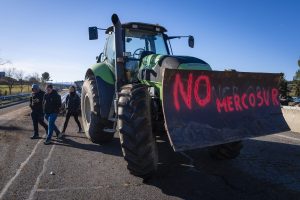The company’s partners already have a second generation of farmers who have either joined or are in the process of joining, thus ensuring the continuity of their farms and enabling a valuable transfer of knowledge between parents and children.
“What excites me the most,” admits the company’s manager, Adolfo García, “is seeing how the partners’ children are joining with a solid technical background and an impressive ability to adapt to new technologies. The average age of a farmer in Spain is around 62, whereas here we’re talking about young people around the age of 40. It’s a paradigm shift.”
This new generation not only ensures the future of the farms but also drives a more modern, technology-driven agriculture, open to innovation and the use of digital tools. In fact, Camposeven is currently undergoing an adaptation phase after making significant technological investments in sorting machines, packaging equipment, and new work systems. “We’ve invested more than one and a half million euros in two years, and although the adjustment period is inevitable, the progress is clear.”
The current pepper season has been affected by an unusually rainy March. Weather conditions hindered flowering and led to problems with botrytis due to excess moisture. However, after this difficult start, the season is now progressing normally, with increasing yields and stable prices both for exports and the domestic market.
RELATED NEWS: Camposeven: “We must preserve what is most valuable: our agriculture”
Another strategic focus is the commitment to online sales. Since 2012, Camposeven has developed a direct-to-consumer marketing channel through its Freshvana platform, delivering increasingly promising results. “Today, our organic produce reaches the customer’s home within 24 hours of being harvested.”
Camposeven is also participating in a project aimed at using second-grade produce by transforming and adding value to it. This research line, developed in collaboration with other local entities, seeks to reduce food waste and find new commercial uses for products that can’t be sold fresh. In parallel, the company is also running individual innovation projects applied directly in the field, focusing on new varieties, farming techniques, and sustainability.


















